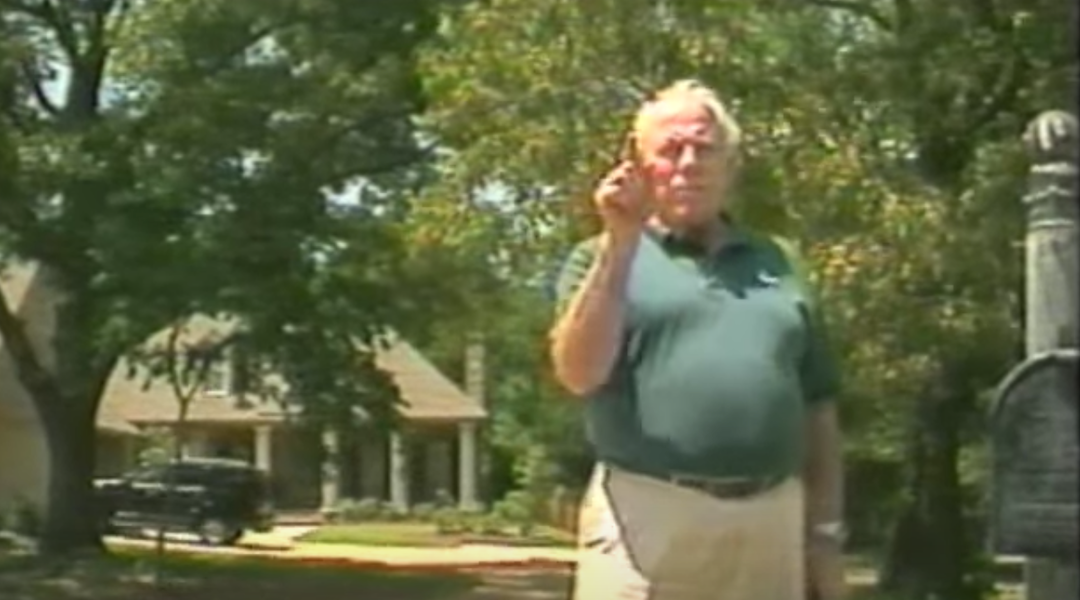Jewish organizations have sharply condemned a claim this week by Mississippi Gov. Kirk Fordice that the United States is a Christian nation.
The American Jewish Congress challenged the chairman of the Republican National Committee to repudiate the remark, which was made Tuesday at a meeting of the Republican Governors Association in Fontana, Wis.
The Anti-Defamation League sent a letter directly to Fordice, calling his comments “appalling” and “unworthy of any governor elected to represent a diverse and pluralistic constituency.”
And B’nai B’rith International issued a condemnation, deeming the remark divisive and contrary to the pluralism upon which this country is founded.
“Unfortunately, Gov. Fordice has yet to learn that America is not a country that is defined in terms of religion or race,” said Kent Schiner, the group’s president. “The United States is a pluralistic society, as any high school civics course could have taught him.”
Fordice declared that “the United States of America is a Christian nation” during a news conference at the close of the Republican governors meeting.
He added that this was a “simple fact of life” that did not imply religious intolerance or that a religious dogma was being “forced on anybody else.”
“The less we emphasize the Christian religion, the further we fall into the abyss of poor character and chaos in the United States of America,” he said.
South Carolina Gov. Carroll Campbell Jr. made an effort to blunt the impact of the remarks by stressing the country’s “value base” was of “Judeo-Christian heritage.”
But Fordice chastised Campbell for the “clarification,” saying, “If I wanted to do that, I would have done it.”
This rebuke showed a “shocking and incomprehensible insensitivity to Jews and Judaism,” ADL’s national director, Abraham Foxman, and Melvin Salberg, its national chairman, wrote in their letter to Fordice.
The exchange between the two governors was ironic because it came at the end of a conference intended to rehabilitate the image of a Republican Party that was badly hurt by its summer national convention, whose message of divisiveness appears to have turned voters off and away in droves.
Just prior to Fordice’s comments, Campbell had been stressing the GOP’s “big tent” philosophy, representing the party’s embrace of diversity and pluralism.
“The offensive statement by Gov. Fordice continues the extremist right-wing rhetoric that the nation heard to its dismay at the Republican National Convention,” said Gary Bretton-Granatoor, director of interreligious affairs at the Union of American Hebrew Congregations.
“It will be a sad day for all Americans should the party of Abraham Lincoln fall into the hands of those who would replace the stars and stripes with Jesus on the cross,” he said. “Christians of good will must feel shock, dismay and embarrassment at the disgraceful and un-American remarks of the governor of Mississippi.”
AJCongress President Robert Lifton and Henry Siegman, the group’s executive director, called on Republican National Committee Chairman Richard Bond to reject the comments.
“The necessary corollary of Gov. Fordice’s remarks is that those who are not Christians or who do not share his vision of Christian morality,” they wrote, “are a threat to the well-being of our nation and are unwelcome in the Republican Party.”
The remarks “suggest a religious threshold which many Americans cannot or will not cross,” they wrote. “If you and other party leaders choose not to condemn these statements, we believe that your silence will say to American Jews and others that they are not welcome in the Republican Party.”
An RNC spokesman said Bond was on vacation and that the party had not yet received the AJCongress letter. But he added that “the party and Chairman Bond certainly oppose any and all religious intolerance.”
Matt Brooks, executive director of the National Jewish Coalition, a Republican group, said he was “extremely disappointed” by the remarks, which he called “quite unfortunate.” But he said the governor was clearly “out of step with the mainstream elements of the Republican Party.”
One prominent Jewish Republican called this “the first salvo” in the battle to determine the direction of the Republican Party after President Bush’s election defeat. He predicted the views of Fordice would remain marginal.
JTA has documented Jewish history in real-time for over a century. Keep our journalism strong by joining us in supporting independent, award-winning reporting.
The Archive of the Jewish Telegraphic Agency includes articles published from 1923 to 2008. Archive stories reflect the journalistic standards and practices of the time they were published.




